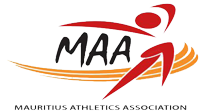The Athletics Coaches Association of Mauritius was founded in 1994 as an association to which all interested in coaching athletics could belong. It is recognised by the Mauritius Athletics Association as responsible for the coordination and development of athletics coaching. The main objectives of the Athletics Coaches Association are:
- To promote coaching in Mauritius so as to improve the quality of performance and the level of participation in athletics;
- To encourage the accreditation, training and testing of persons to become qualified coaches and to arrange for the proper regulation of such activities;
- To develop the coaching of athletics within athletics schools, clubs, regional and national training centres;
- To safeguard the professional integrity and image of ACA and its members;
- To represent the interests of coaching and coaches in the decision-making processes affecting the ACA.
Code of Ethics for Coaches of ACA
The coach’s primary role is to facilitate the process of individual development through achievement of Athletic potential. This role accepts the athletes’ long-term interests as of greater importance than short term athletic considerations. To fulfil this role the coach must behave in an ethical manner. By becoming a member of the ACA, a coach agrees to be held accountable for any breach of the following points:
- Coaches must respect the basic human rights, that is, the equal rights, of each athlete with no discrimination on the grounds of gender, race, colour, language, religion, political or other opinion, national or social origin, association with a national minority, birth or other status.
- Coaches must respect the dignity and recognise the contribution of each individual. This includes respecting the right for freedom from physical or sexual harassment and advances.
- Coaches must ensure that practical environments are safe and appropriate. This appropriateness must take into consideration the age, maturity and skill level of the athlete. This is particularly important in the case of younger or less developed athletes.
- Coaches must acknowledge and respect the Rules of Competition. This respect should extend to the spirit as well as to the letter of the rules, in both training and competition, to ensure fairness of competitive opportunity between all athletes.
- Coaches must exhibit an active respect for officials, by accepting the role of the officials in providing judgement to ensure that competitions are conducted fairly and according to the established rules.
- Coaches must accept final responsibility for the performance and conduct of the athletes they coach, while at the same time encouraging the independence and self-determination of each athlete by their acceptance of responsibility for their own decisions, conduct and performance.
- Coaches must assert a positive and active leadership role to prevent any use of prohibited drugs or other disallowed performance enhancing substances or practices. This leadership by coaches includes education of the athletes of the harmful effects of prohibited substances and practices.
- The coach must acknowledge that all coaches have an equal right to desire the success of the athletes they coach – competing within the rules. Observations, recommendations and criticism should be directed to the appropriate person outside the view or hearing of the public domain.
- Coaches must never solicit, either overtly or covertly, athletes who are receiving coaching to join their squad or change their coaching situation without first involving the current personal coach or coaches.
- The coach must acknowledge and recognise that all athletes have a right to pursue their athletic potential, including when an athlete’s development would benefit from a change of coaching situation. The coach should ensure that, in these cases, any formation of a coaching partnership or transfer to another coach is actively explored with the athlete, whose decision is supported.
- Coaches should hold recognised coaching qualifications. Coaches should respect that the gaining of coaching qualifications is an ongoing commitment, achieved through the upgrading of their knowledge by attendance of accredited courses and through practical coaching experience. Coaches also have a responsibility to share the knowledge and practical experience they gain.
- Coaches must respect the image of the coach and the reputation of the Association and continuously maintain the highest standards of personal conduct, reflected in both the manner of appearance and behaviour, so that they do not bring Coaching or the Association into disrepute.
- Coaches must never smoke while coaching or in the presence of athletes, nor consume alcoholic beverages so soon before coaching that it affects their competence or that the smell of alcohol is on their breath.
- Coaches must enter into full cooperation with all individuals and agencies that could play a role in the development of the athletes they coach. This includes working openly with other coaches, using the expertise of sports scientists and sports physicians and displaying an active support of their National Federation and the IAAF.
ACA MANAGING COMMITTEE MEMBERS 2019
Contact Details
 Athletics Coaches Association Mauritius
Athletics Coaches Association Mauritius
Primo Nebiolo House
Maryse Justin Stadium,
REDUIT
Email: mauritiusaca@gmail.com
